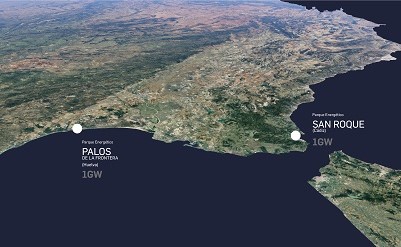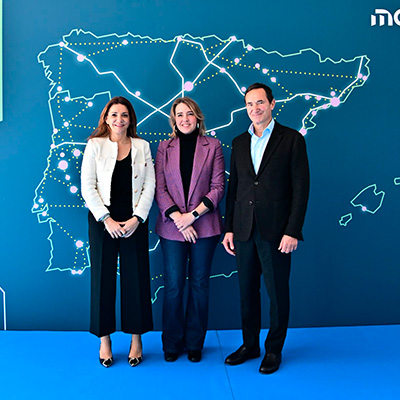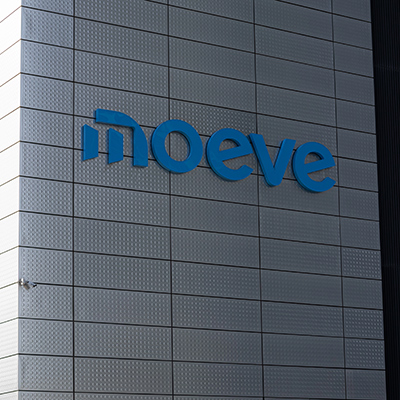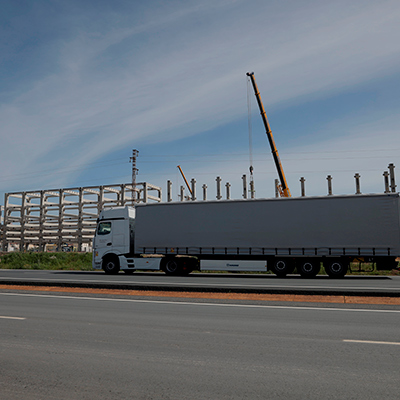- thyssenkrupp nucera has received an award to provide a basic engineering design package, utilizing scalum® modules, for a new green hydrogen plant
- Integration of a 300-MW electrolyzer featuring alkaline water electrolysis technology into the first phase of Cepsa's green hydrogen project in southern Spain, located at its energy park in Huelva, which it is developing in partnership with Fertiberia
- Cepsa’s selection of thyssenkrupp nucera as a preferred supplier represents an important step for the development of the Cepsa-led Andalusian Green Hydrogen Valley in southern Spain, one of the largest projects of its kind in Europe
The first phase of the Andalusian Green Hydrogen Valley entails a green hydrogen production plant at Cepsa’s La Rábida Energy Park in Palos de la Frontera (Huelva) as part of their partnership with Fertiberia. With a production up to 47,000 tons green hydrogen per year, it will form part of Cepsa’s wider plans to develop 2 gigawatts of green hydrogen capacity in southern Spain by 2030.
“We are very pleased to be working with an innovative partner to create one of the largest hydrogen valleys in Europe and to contribute to Cepsa’s path to a gigawatt capacity,” says Dr. Werner Ponikwar, CEO of thyssenkrupp nucera.
Cepsa is developing the Andalusian Green Hydrogen Valley as part of an ecosystem of European alliances, Europe’s largest green hydrogen hub to be developed. The company is one of the first movers in the creation of a green hydrogen economy in Spain, forging partnerships for a value chain that can scale up as demand grows. As part of this new market, there will be opportunities to develop assembly capability for electrolysis equipment in Spain, generating employment and protecting Europe from exposure to shortages of key equipment and long lead times from competitive markets.
“This is a decisive step in our Positive Motion strategy as we move to become a leading producer of green hydrogen developing vitally needed clean energy solutions for industry and heavy transport in Spain and across Europe. Our agreement with thyssenkrupp nucera brings together leading European businesses to create a European green hydrogen supply chain and accelerate decarbonization across the continent,” says Carlos Barrasa, Cepsa’s Executive Vice President of Commercial and Clean Energies.
The green electricity required for the production process is to come from solar and wind energy, which is plentiful in southern Spain, making it one of the most competitive places in Europe for green hydrogen production. The region also has access to strategic ports, forming the basis for the maritime corridor that Cepsa has set up with partners to transport hydrogen between southern and northern Europe, ensuring decarbonization solutions across the continent.
“thyssenkrupp nucera’s alkaline water electrolysis developed with our engineer’s industrial DNA is again the key to transform renewable energy into green hydrogen to decarbonize hard to abate industries. This project with Cepsa once again demonstrates the strong confidence of leading industrial players in our technology,” says Dr. Christoph Noeres, Head of Green Hydrogen of thyssenkrupp nucera.
thyssenkrupp nucera’s technology will be used for important green hydrogen projects over the globe. For example, the electrolysis specialist is supplying scalum® modules with a total capacity of more than 700 MW for the green steel plant of H2 Green Steel in Sweden. Air Products in Saudi Arabia will use thyssenkrupp nucera’s electrolyzer units for its more-than-2-gigawatt electrolysis plant at Neom in Saudi Arabia. Currently, thyssenkrupp nucera is supplying over 3 gigawatts of electrolyzer capacity.




